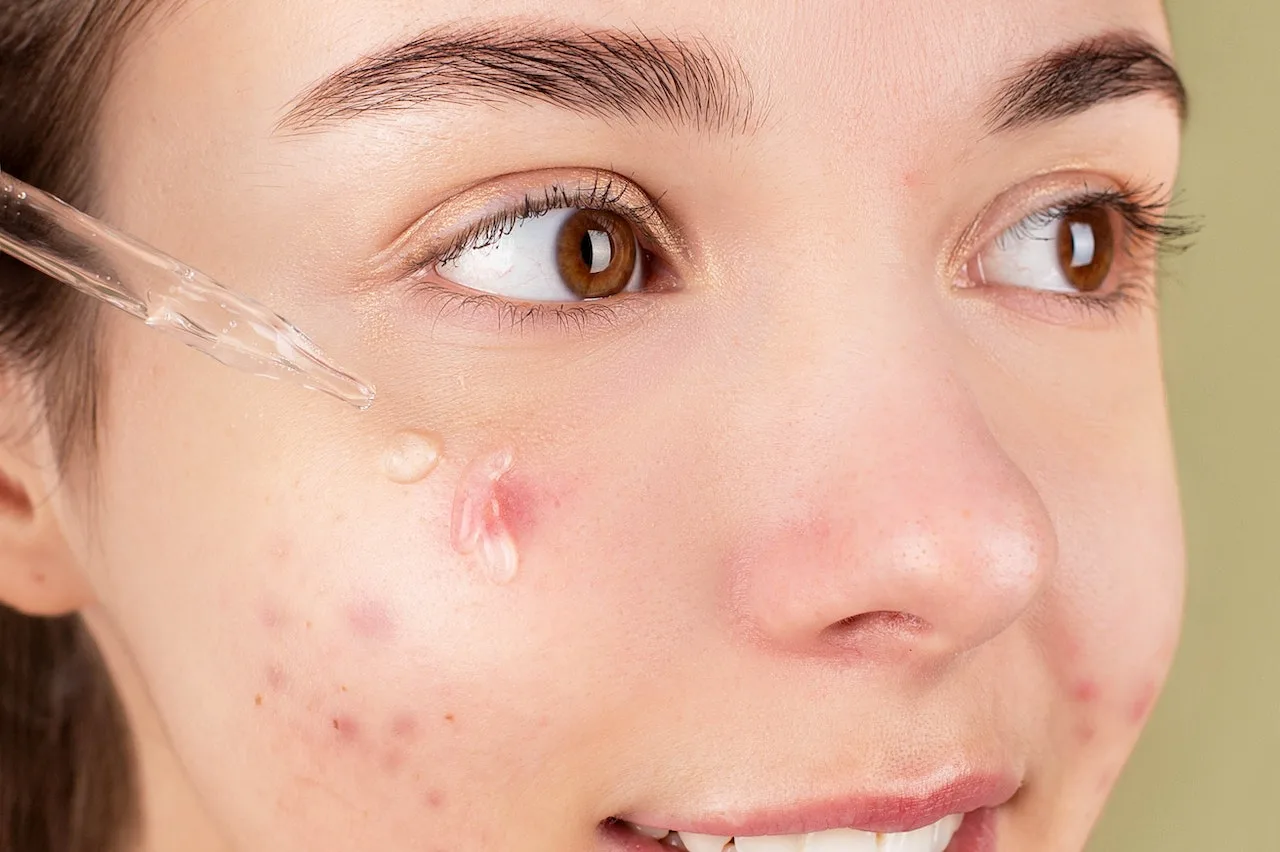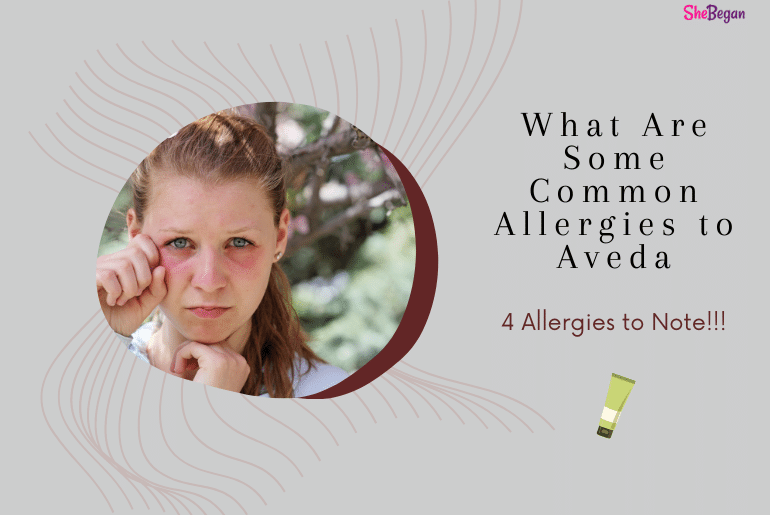Aveda products are made with natural ingredients, which gives them a variety of benefits. It is a popular line of products for hair, skin, and nails and has been around for a while.
The main thing that Aveda products do is cleanse the skin and hair. This helps to remove dirt and oil, which can clog pores and cause acne. It also removes residue from styling products like gel or mousse.
The brand is known for its natural ingredients, which may also help treat certain skin conditions like eczema or psoriasis by helping to reduce inflammation and irritation. While many people enjoy the products without any problems, some experience allergic reactions.
Thus, this article will highlight and explain the common allergies to Aveda products and some other things you need to know about the product.
Some Common Allergies Associated with Aveda
Allergies occur when your immune system reacts to an external factor in your body.

Aveda is s said to have some allergies, the following are the common allergies to Aveda:
1. Skin irritation
The most common reaction is a skin rash or irritation. It may look like eczema or psoriasis, but it’s usually less severe. It can range from mild to severe and may include blisters or bleeding. The rash often appears within minutes of exposure to the product and disappears within a few hours without treatment.
2. Hives (urticaria)
Hives are red, itchy bumps that usually appear on your skin after you have been exposed to an allergen such as skin care or drug for the first time. The bumps usually affect both sides of your face at once and are scattered across your body in random spots rather than grouped together in one area.
3. Swelling (angioedema)
Swelling happens when fluid builds up under your skin because of an allergic reaction to Aveda. This type of swelling happens within seconds or minutes after exposure to something that causes an allergic reaction in most people who are allergic to it.
How to Counteract Aveda Allergies
Allergies caused by Aveda can be cured by taking antihistamine medication, which will help reduce the inflammation of the skin tissue and allow it to heal more quickly. You should also avoid any further exposure to plants that may cause this condition in order to prevent future outbreaks of Aveda allergies.
However, the medication might not be the best remedy for all skin types as it could worsen the situation of the condition. In such a case, I recommend you visit your doctor for the best remedy in order to prevent further problems.
What Ingredients in Aveda Cause Allergies?
Aveda’s ingredients are 100% vegetarian, cruelty-free, and never tested on animals. They also claim to avoid the use of animal fats in their products.
For most of Aveda’s products, they make use of naturally derived ingredients whenever possible, including jojoba oil, avocado oil, green tea leaf extract, and aloe vera leaf juice. This means that many products do not contain mineral oil or petroleum byproducts like paraffin wax, glycerin, or sodium lauryl sulfate (SLS).
The causes of allergies are a number of ingredients embedded in the product such as:
1. Isopropyl Alcohol
Isopropyl alcohol is used as a solvent and cleanser. It is also found in many cosmetic products such as lotions, shampoos, hair sprays, and other cosmetics. It is part of the Aveda formulation and some people may be allergic to the ingredient.
2. Benzyl Alcohol
Benzyl alcohol is used as a preservative in many cosmetic products including creams, lotions, shampoos, conditioners, deodorants, and even some sunscreens. Some people may be allergic to this ingredient. In Aveda, it can cause irritation, especially on sensitive skin.
3. Formaldehyde
Aveda’s formaldehyde-free products do not have formaldehyde or quaternion-15 in them. These preservatives are known to cause allergic reactions in some people.
4. Fragrances
Fragrances are another ingredient used in many cosmetic products including Aveda. The product uses natural fragrances in their products and these can cause allergic reactions in some people.
5. Wheat Proteins
Also, Aveda uses wheat proteins in many of its products which can cause an allergic reaction in those who are sensitive to it or have wheat allergies.
ALSO READ: Best Sulfate-free Shampoos:
Can Aveda Shampoo Cause An Itchy Scalp?
Yes, Aveda shampoo can cause an itchy scalp. Aveda has been known to cause some skin reactions in people who use its products. Some of these reactions include an itchy scalp, redness and swelling on the face, rashes on the body, and even hives and itching eyes.
The main ingredient in Aveda products is lavender oil. This is known to cause adverse reactions for some people when applied directly to the skin or inhaled as an essential oil. Also, Lavender oil can also cause allergic reactions in people who have sensitive skin or allergies to other ingredients used in Aveda products.
If you have sensitive skin or allergies to other ingredients used in Aveda products, it may be best to avoid using them until you know what causes your reaction and how severe it is going to be. This way you will be able to treat the symptoms early on before they get worse or become more serious problems like contact dermatitis or eye irritation from using too much product at once.
There are many reasons why you may develop an itchy scalp when using Aveda shampoo. Some of these include:
1. Allergies
Allergies can cause irritation on your skin, which can lead to an itchy scalp. If you have allergies or other skin conditions, make sure that you do not use this type of product until you have consulted with your doctor about what type of shampoo will work for you.
Also, make sure that you do not use any other products that may contain allergens such as dyes or perfumes until you know what is causing the reaction.
2. Dandruff
Dandruff is another condition that causes itching on the scalp due to flaking dead skin cells. Aveda was accused of using ingredients that could be harmful to those with skin allergies which can lead to scalp itchiness.
Does Aveda Have Methylisothiazolinone?
Yes. Aveda’s Pure Abundance Hydrating Shampoo contains Methylisothiazolinone, an ingredient that can cause contact dermatitis and other skin irritations. Although Aveda is an all-natural hair care company, you should be informed that some naturally contain chemicals and sometimes those chemicals are toxic.
Methylisothiazolinone (MI) is an organic compound that is commonly used as a preservative in cosmetic products like shampoos, conditioners, moisturizers, and even sunscreens. This chemical can cause allergic reactions in some people who are sensitive to it. It’s also been linked to eczema flares in children and adults alike who already have eczema or other skin conditions such as rosacea or acne.
Are There Chemicals In Aveda Products?
Yes, there are chemicals in Aveda products. Although the product is made from plants and pure, natural ingredients. They use a variety of naturally derived ingredients that are safe and effective. But they do use some synthetic chemicals.
The following list includes the most common chemicals they use in their products. Some of these chemicals may be considered by some consumers to be undesirable or even dangerous to human health. However, they have been thoroughly tested for safety by the U.S. Food and Drug Administration (FDA) and other agencies around the world.
- Parabens: they are used in many personal care products as preservatives because they inhibit bacterial growth without being absorbed by the skin. They also help retain product freshness by preventing the oxidation of fragrances, oils, and other active ingredients
- Fragrance: fragrances are used to enhance the appeal of personal care products through their unique scents
- Mineral Oil: mineral oil is a non-toxic petrolatum that helps prevent moisture loss from dry skin
Conclusion
In short, the common allergies that have toward Aveda products range from skin irritation to Swelling. These are mostly caused by the kinds of ingredients used in the product formulation such as alcohol among others. You can control it by taking medications or consulting your doctor.






